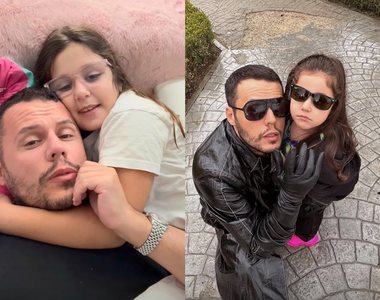
If you have teenagers at home, engaging them in conversation can be a real challenge. They may feel annoyed because they have headphones in their ears, quietly whisper words that express boredom, withdrawal from focus, etc. Well, if you actually get a response from them, then you're in luck!
Parents know well that facing this stage in children's lives is not always easy, so how you survive the obstacles to pave the way to cooperation and communication is what is needed.
The way you talk to teenagers matters a lot, so the less often you use the following expressions, the better!
#1 "It's No Big Deal"
Something that seems small to you may be important to your teenager. Therefore, this expression sounds derogatory about the things they do and say, as much as they value it as banal.
#2 "Why don't you look a little like your brother/sister or friends?"
These kinds of comparisons are harmful at any age. Instead of focusing on comparison to others, appreciate their individuality and accept their unique developmental trajectory.
#3 "You should..."
Never open a discussion with tips! You can always suggest or advise if they are asked. But starting a conversation in such a way does not encourage any experience in teenagers, it is even taken in the form of an order.
#4 "Enjoy life now, before you have responsibilities or real problems."
We should try to imagine how things look from the perspective of our teenagers, not adults. Statements asking them to let go of the present and focus on the future simply minimize the reality and importance of the present life.
#5 "You're so irresponsible. What's wrong with you?"
Not only is it a hurtful expression, but it is likely to arouse the teenager's defensiveness towards you. You can talk about your feelings and propose common solutions, but harsh criticism never does any good.
#6 "It doesn't matter what other people think about you."
Although you may believe this to be true, you know that teenagers worry a lot about the opinions or approval of their peers. They do not have time to develop skills that contradict the feelings and evaluations of their peers, so such an expression hurts them.
#7 "This happened to me when I was your age."
It's a nice idea to relay a similar experience you may have had, validating your empathy, but that kind of response isn't always what kids need. Your teen may not feel heard, or you may not understand that they are different from you and their experience is simply unique.
#8 “If I had told my parents this, they would have…”
It's impossible not to compare your teen's experiences with your own, but it's not always a good idea to share these thoughts. This causes teenagers to feel that their experiences are being judged by old standards.
Suggested articles:
- 7 Signs Your Child Needs a Therapist
- The 16-year-old teenager is sentenced to life imprisonment, but why?
- The 19-year-old is the youngest person to be diagnosed with Alzheimer's!
- The teenager who annoyed Elon Musk is now tracking the private jets of Russian oligarchs
- How to behave when you learn that your teenage child has started romantic relationships







